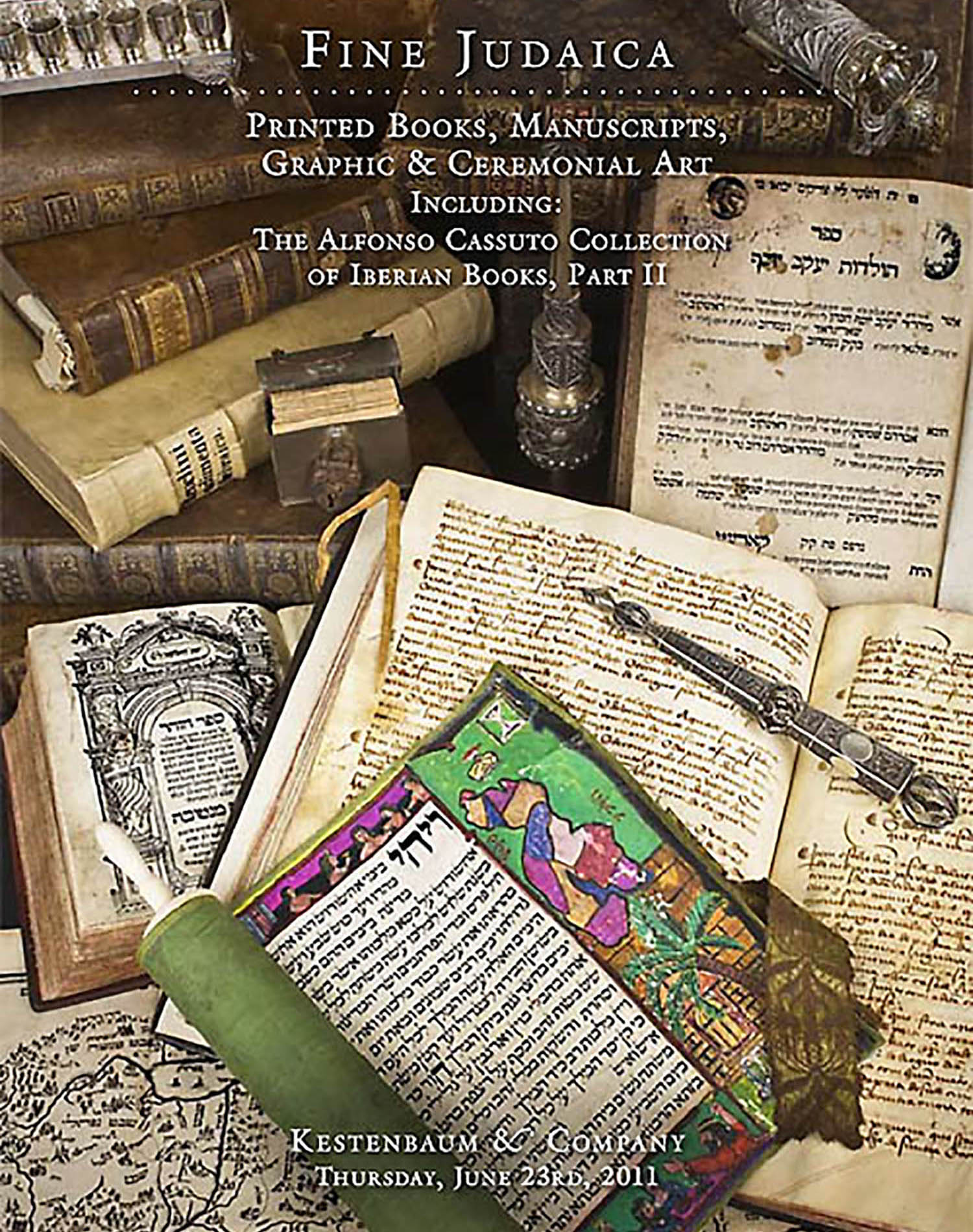Opera Posthuma. Five parts in one: Ethica; Tractatus Politicus; Tractatus de Intellectus Emendatione; Epistolae [Scientific Correspondence]; and Compendium Grammatices Linguae Hebraeae [Hebrew Grammar]

AUCTION 51 |
Thursday, June 23rd,
2011 at 1:00
Fine Judaica: Printed Books, Manuscripts Graphic & Ceremonial Art Including: The Alfonso Cassuto Collection of Iberian Books, Part II
Lot 37
(SPINOZA, BENEDICTUS DE)
Opera Posthuma. Five parts in one: Ethica; Tractatus Politicus; Tractatus de Intellectus Emendatione; Epistolae [Scientific Correspondence]; and Compendium Grammatices Linguae Hebraeae [Hebrew Grammar]
(Amsterdam: J. Rieuwertsz) 1677
Est: $4,000 - $5,000
PRICE REALIZED $5,000
First edition of Spinoza’s highly influential philosophical work.
Baruch Spinoza (1632-77) was educated in the Orthodox Sephardi culture of Amsterdam, however his rebellion against traditional religious thought - propounding pantheism - ultimately led to rabbinic excommunication.
Spinoza is considered today as one of Western philosophy's most important thinkers, one of the great rationalists of the 17th-century, who laid the groundwork for the 18th-century Enlightenment.
Published in the year of his death, the “Opera” was bannned by the States of Holland for blasphemy. An engraved portrait of Spinoza was composed three years after his death, which was inserted by the publisher into those copies of this first edition that were still in stock (see E. Altkirch, Spinoza im Portraet, pp. 61-3 and as noted by Mehlman no. 1943). See A.K. Offenberg, Bibliotheca Rosenthaliana—Treasures of Jewish Booklore (1994), p. 31; JE, Vol. XI, pp. 511-20; EJ, Vol. XV, pp. 275-84.
“The Opera Posthuma has served to immortalize Spinoza’s name.” (Printing and the Mind of Man, no. 152)
